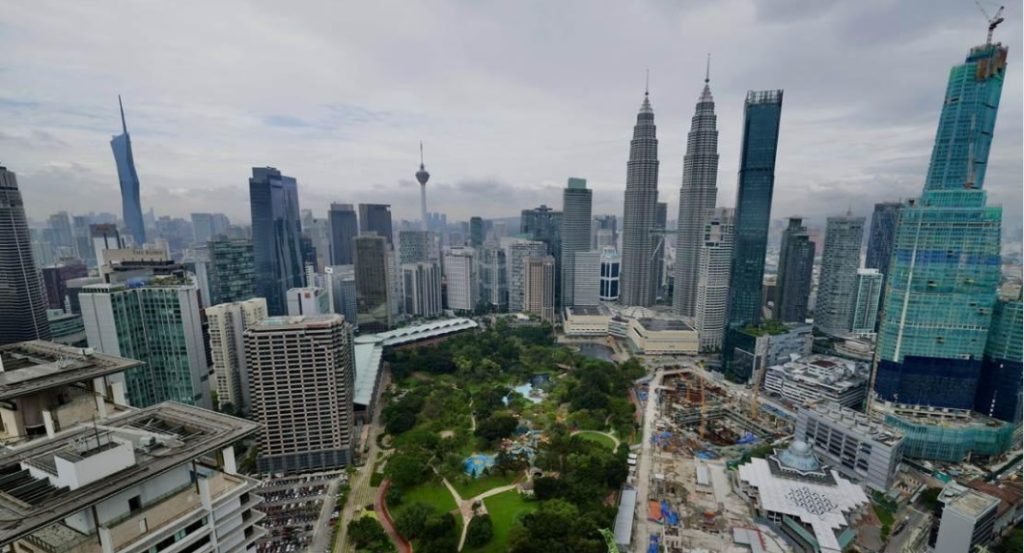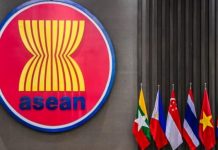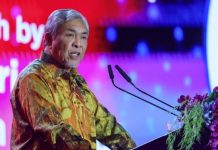
Malaysia’s economic outlook for 2025 appears optimistic with a mix of opportunities and challenges ahead, depending on policy implementation, particularly in fiscal discipline, economic inclusivity and the adoption of technological innovations to sustain growth.
The Malaysian Institute of Economic Research (MIER) is projecting a steady gross domestic product (GDP) rate of between 4.5% and 5.5%, seeing it as an achievable target.
“Domestic demand, exports, investor confidence and inflation are expected to align with the easing global inflation trend, while political stability will continue to set the growth driver tone,” MIER said, cautioning that Malaysia is still vulnerable to global economic uncertainties.
For example, challenges such as income inequality, lack of inclusivity, competitiveness issues, environmental sustainability and the skills mismatch in the labour market continue to constrain the nation’s growth potential.
However, the government has also introduced future-proof policy frameworks to attract and support foreign investors while advancing its economic ambitions, emphasising on flexibility to adapt to the evolving dynamics of the global economic landscape.
Among some of the key industries for investments and business growth include electrical and electronics (E&E), chemical, aerospace, medical devices and pharmaceuticals.
So far, the factors that have been central in propelling Malaysia’s economic growth includes digital transformation, infrastructure development and human capital investment, while the country’s dedication to sustainability from its environmental, social and governance (ESG) initiatives have significantly enhanced its appeal to foreign investors.
Due to the country’s welcoming business environment with supportive policies and favourable climate for foreign businesses, Chinese companies are keen to establish operations in Malaysia, as highlighted by the China Enterprises Chamber of Commerce in Malaysia (CECCM).
“The strong partnership (between the two countries) has led to deeper collaboration in key industries like construction, technology and sustainable energy.
“Looking ahead, I see some promising areas where Chinese and Malaysian businesses can collaborate, especially around new technologies and sustainability,” CECCM president Ni Qingjiu said, emphasising the importance of the organisation in guiding its 348 member companies through local regulations and helping them connect with Malaysian industries.
“CECCM is actively engaging with local authorities to find solutions and this kind of support makes it easier for them to operate smoothly and build trust in the local business community,” he noted.
To date, there have already been several significant partnerships between Malaysian and Chinese firms, such as the joint development of the East Coast Rail Link (ECRL), which is a mega project under the Belt and Road Initiative involving the China Communications Construction Company (CCCC) and Malaysia Rail Link Sdn Bhd (MRL).
“The project has brought significant investments to Malaysia and created many local jobs, with Malaysian companies contributing to construction and services,” Ni said.
He added that there will be more opportunities for enhanced cooperation for companies in both nations, especially in areas such as the electric vehicle (EV) and relevant infrastructure, green technology and renewable energy (RE), advanced manufacturing as well as digital and AI-driven technologies.
“Overall, we aim to support Malaysia’s aspirations for sustainable and digital development, while also showcasing the positive contributions that Chinese enterprises are making in the country,” he added.
Similarly, Prime Minister Datuk Seri Anwar Ibrahim stated that Malaysia can always align its policies to match new demands and ever-evolving industries in a multi-pronged approach to continuously attract high-value investments.
For instance, Malaysia has been focusing on assessing the entire policy on water conservation due to the high demand of water by data centres.
“We have never encountered such high demand for water except now by these data centres. They have been asking for more water, more energy,” he said.
Apart from this, there is also a need for skilling, up-skilling, training and exposure, changing the curriculum in universities, colleges and schools. To this end, Malaysia is successful because the government listens, Anwar assured.
“When our friends from Microsoft, Google and Huawei come to us, we tell them to give us some time, let us listen to the requirement you have,” he added.
Hence, the prime minister noted that public policy and governments cannot assume that they can go inviting and attracting this sort of investment without being prepared to undertake major initiatives to allow the agencies of investment to come in.
Being also the Finance Minister, Anwar acknowledged that progress the country made in attracting investments was not without its set of challenges and bottlenecks.
“We were also stuck with come bureaucratic rules and we have to be able to coordinate or bypass this. And then the system is not only the state governments, (as we also) have municipalities.
“But if we could cut across all this with one particular major investor, then (word) would just spread out,” he explained.
In terms of achieving this goal in the context of ASEAN, Anwar stated, “We have a bigger framework, somewhat similar incentives and we complement each other because other countries have the expertise, but no water. So, we are keen to have this sort of collaboration more effectively.”














